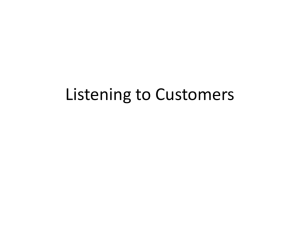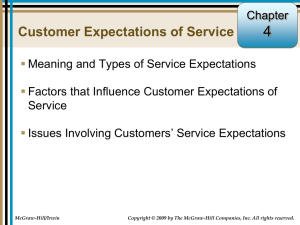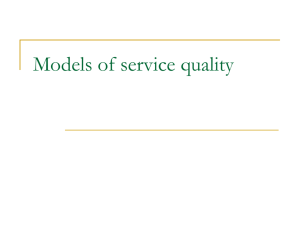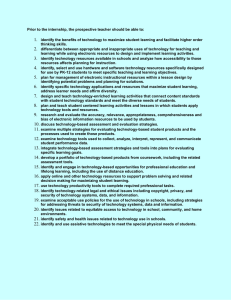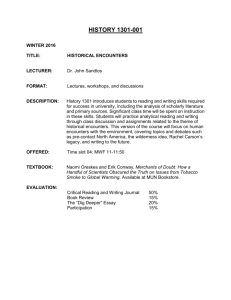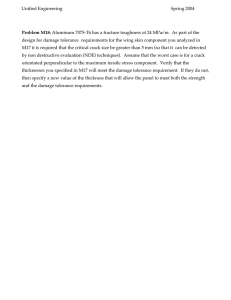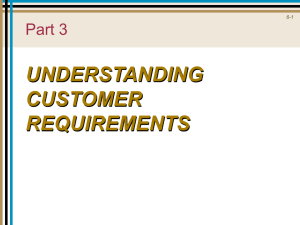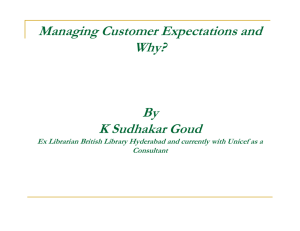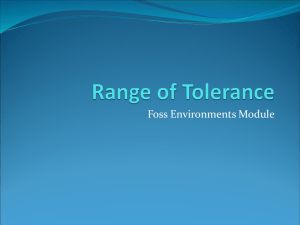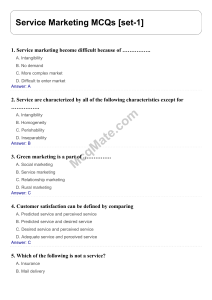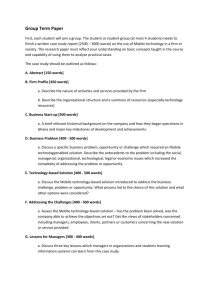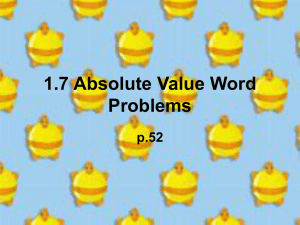Exam 1 Review (posted 9/12/07)
advertisement
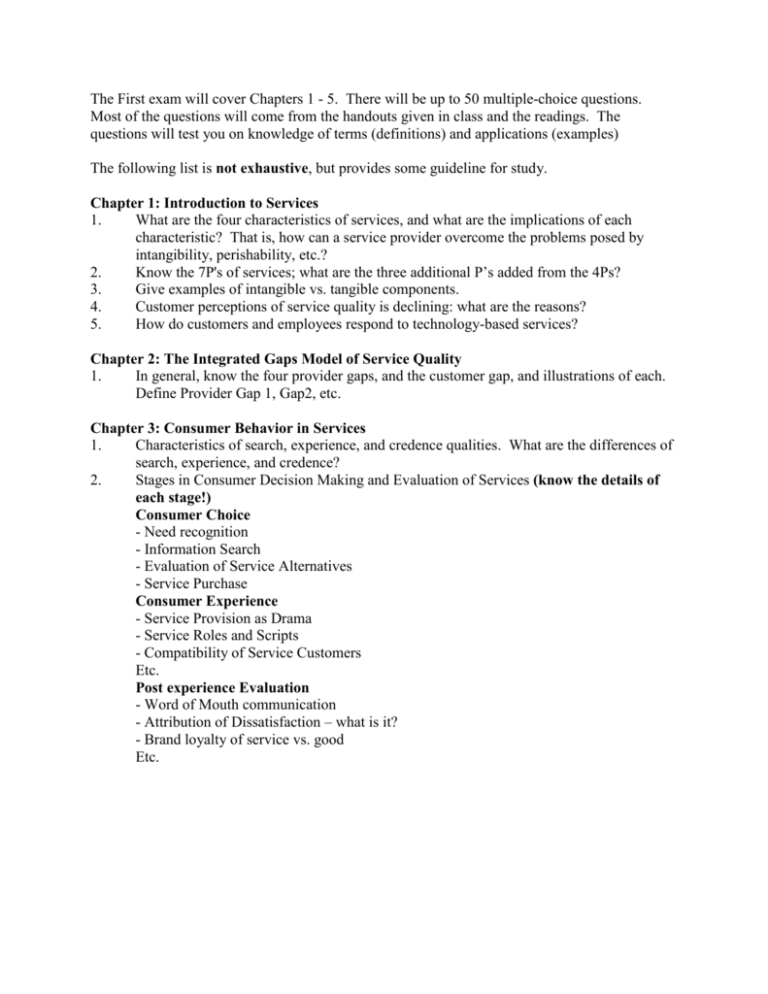
The First exam will cover Chapters 1 - 5. There will be up to 50 multiple-choice questions. Most of the questions will come from the handouts given in class and the readings. The questions will test you on knowledge of terms (definitions) and applications (examples) The following list is not exhaustive, but provides some guideline for study. Chapter 1: Introduction to Services 1. What are the four characteristics of services, and what are the implications of each characteristic? That is, how can a service provider overcome the problems posed by intangibility, perishability, etc.? 2. Know the 7P's of services; what are the three additional P’s added from the 4Ps? 3. Give examples of intangible vs. tangible components. 4. Customer perceptions of service quality is declining: what are the reasons? 5. How do customers and employees respond to technology-based services? Chapter 2: The Integrated Gaps Model of Service Quality 1. In general, know the four provider gaps, and the customer gap, and illustrations of each. Define Provider Gap 1, Gap2, etc. Chapter 3: Consumer Behavior in Services 1. Characteristics of search, experience, and credence qualities. What are the differences of search, experience, and credence? 2. Stages in Consumer Decision Making and Evaluation of Services (know the details of each stage!) Consumer Choice - Need recognition - Information Search - Evaluation of Service Alternatives - Service Purchase Consumer Experience - Service Provision as Drama - Service Roles and Scripts - Compatibility of Service Customers Etc. Post experience Evaluation - Word of Mouth communication - Attribution of Dissatisfaction – what is it? - Brand loyalty of service vs. good Etc. Chapter 4: Customer Expectations of Service 1. Definitions and applications of customer expectations (desired service, zone of tolerance, adequate service) 2. What are the different factors that influence desired service, zone of tolerance, and adequate service? Know these factors in detail! 3. How do these different factors alter (increase, decrease) desired service, zone of tolerance, and adequate service? 4. Consider class exercise on customer unrealistic demands, delighting the customer, implications, etc. Chapter 5: Customer Perceptions of Service 1. What determines customer satisfaction? 2. Know the five (5) dimensions of service quality and examples of each 3. What is service encounter? 4. Know the common themes in critical service encounters and examples: recovery, adaptability, coping, spontaneity 5. Technology-based Service Encounters Case 4: “The Quality Improvement Customers Didn’t Want” 1. What is the topic of this case? What are the problems that the decision makers face?
